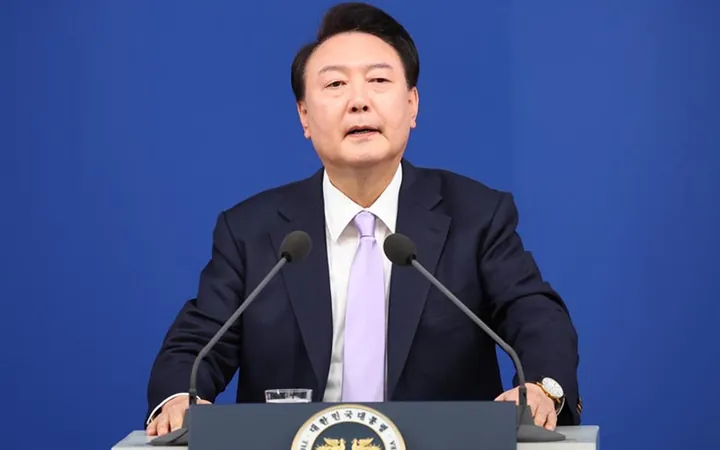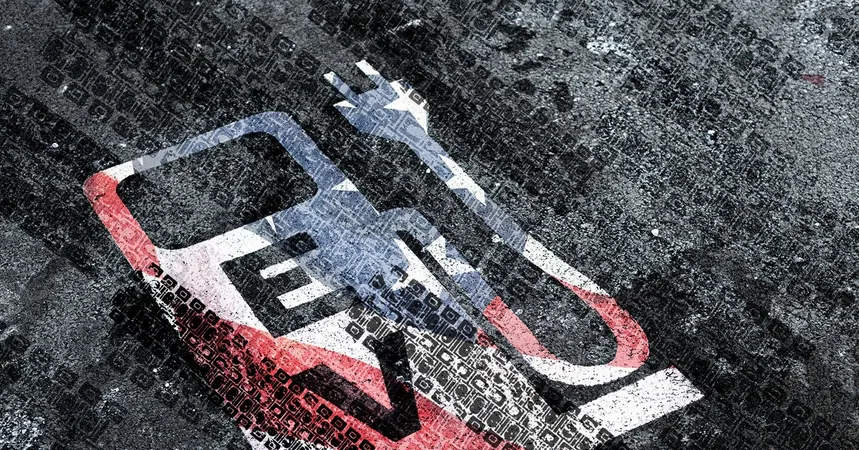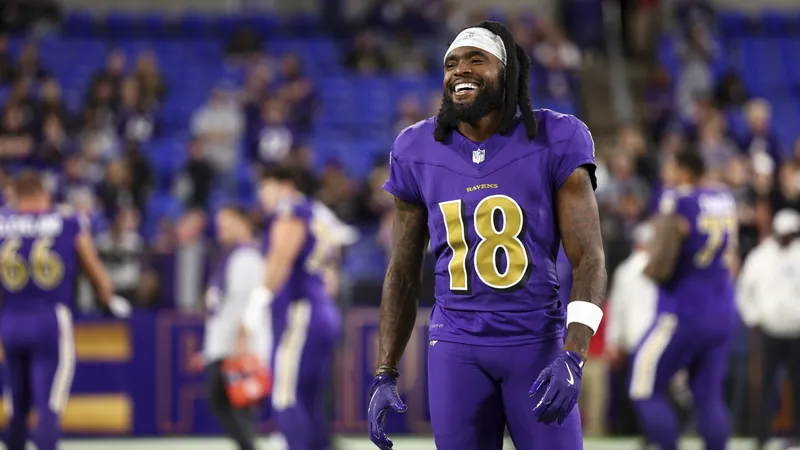
Legal Storm: Yoon Suk Yeol's Team Dismisses Rebellion Allegations Amidst Ongoing Controversy
2024-12-17
Author: Jessica Wong
Denial of Rebellion Allegations
In a bold declaration on December 17, President Yoon Suk Yeol’s legal team vehemently denied any allegations of rebellion, insisting, "We do not agree with the concept of rebellion as a legal matter in the slightest." The statement came in response to rising tensions surrounding President Yoon's declaration of martial law, which some critics framed as an abuse of power.
Legal Team's Insights
Seok Dong Hyun, a lawyer with a long-standing relationship with President Yoon and a key advisor, elaborated on the situation. He emphasized that the president plans to appear in court confidently should a public hearing take place. Seok suggested that martial law was not an impulsive decision but a reaction to ongoing obstruction by the opposition party, stating, “It wasn’t just a reaction out of frustration; it was a justified response in light of continuous challenges to effective governance.”
Political Climate
He further remarked on the political climate, suggesting that “the rampant impeachment attempts and budget cuts have created a scenario that disrupts the constitutional order.” According to him, this could spark necessary legal debates surrounding the legitimacy of the impeachment actions taking place.
Investigations and Allegations
Seok characterized the ongoing investigations into President Yoon's actions as "frenzied" and lacking justification. “While the situation may have startled the public, it’s a stretch to label it rebellion,” he stated. He questioned why a sitting president would orchestrate a rebellion against himself and attributed the dramatic framing of events to certain factions, particularly the opposition, describing their reactions as "overblown."
Non-Cooperative Stance
The dynamics worsened as President Yoon and his administration are presently maintaining a non-cooperative stance towards a probe into the martial law declaration. They neglected a summons from the Special Investigation Unit, which requested the president’s appearance by December 15, prompting the unit to issue a second summons demanding his presence by December 21.
Obstruction of Summons
Efforts to personally deliver this summons have also faced obstruction. The joint task force engaged in the investigation, comprising police, the Corruption Investigation Office for High-Ranking Officials (CIO), and military investigators, met resistance when attempting to serve the summons at both the presidential office and Yoon's official residence. The summons sent to the residence were returned and marked as "refused by the recipient," while those sent to the presidential office were labeled "addressee unknown."
Calls for Reform
Seok criticized the dual investigations occurring in tandem with impeachment trials, calling for fundamental reforms in how these investigative bodies operate. He declared, “It’s entirely impractical to conduct concurrent investigations while managing an impeachment trial. There are too many agencies competing with each other, leading to disarray.”
Presidential Status Amid Turmoil
He asserted that despite the impeachment process, the president retains his status. “The president is still the president, regardless of the current turmoil,” he said. Addressing questions about when President Yoon would comply with the summons, Seok did not provide a definitive timeline but hinted that a decision would be made soon, while emphasizing, “Being summoned does not equate to an obligation to appear immediately.”
Political Implications
As the situation unfolds, concerns grow regarding the potential implications for South Korea's political landscape and rule of law, particularly with the unfolding narrative of opposition accusations compared to governmental actions. As public interest in this legal drama peaks, many await further developments in this high-stakes political showdown.



 Brasil (PT)
Brasil (PT)
 Canada (EN)
Canada (EN)
 Chile (ES)
Chile (ES)
 España (ES)
España (ES)
 France (FR)
France (FR)
 Hong Kong (EN)
Hong Kong (EN)
 Italia (IT)
Italia (IT)
 日本 (JA)
日本 (JA)
 Magyarország (HU)
Magyarország (HU)
 Norge (NO)
Norge (NO)
 Polska (PL)
Polska (PL)
 Schweiz (DE)
Schweiz (DE)
 Singapore (EN)
Singapore (EN)
 Sverige (SV)
Sverige (SV)
 Suomi (FI)
Suomi (FI)
 Türkiye (TR)
Türkiye (TR)